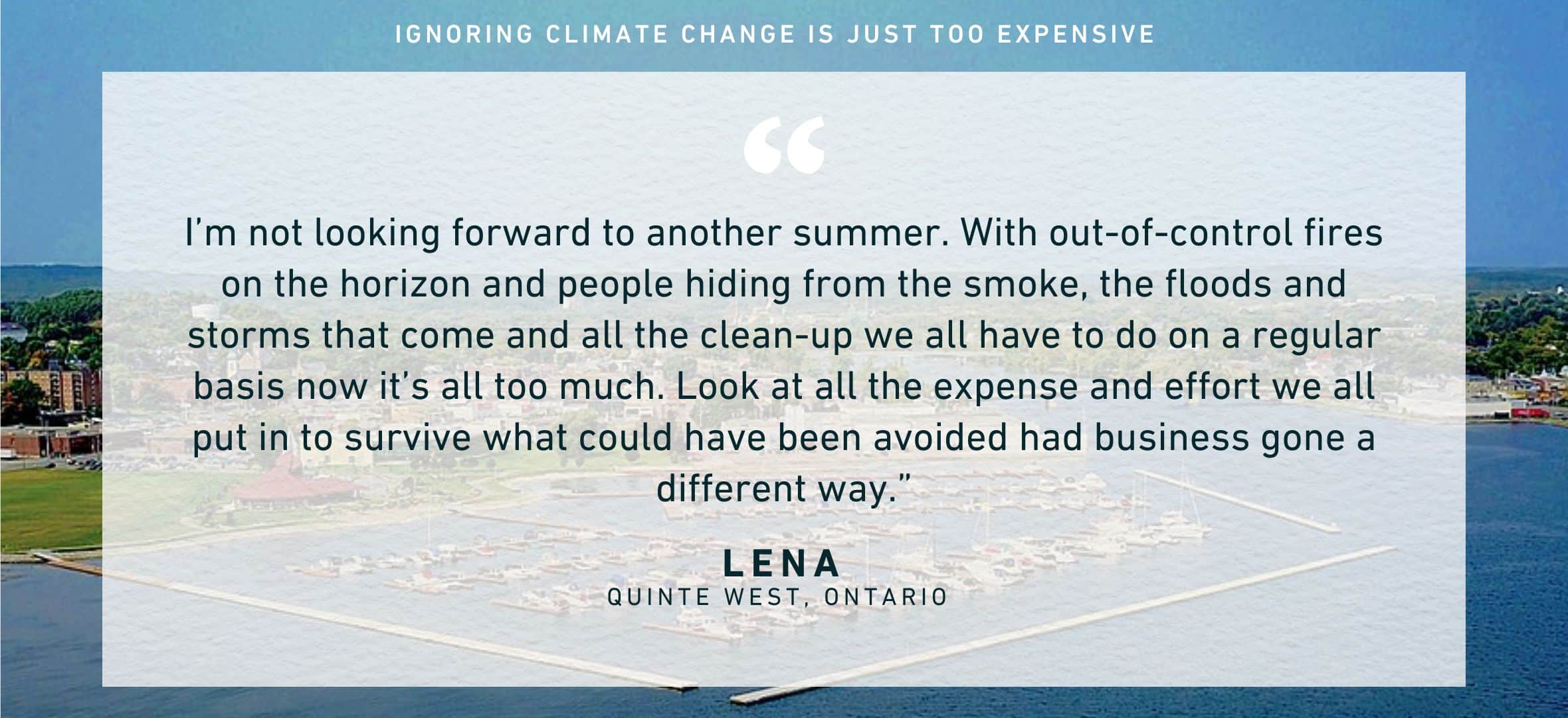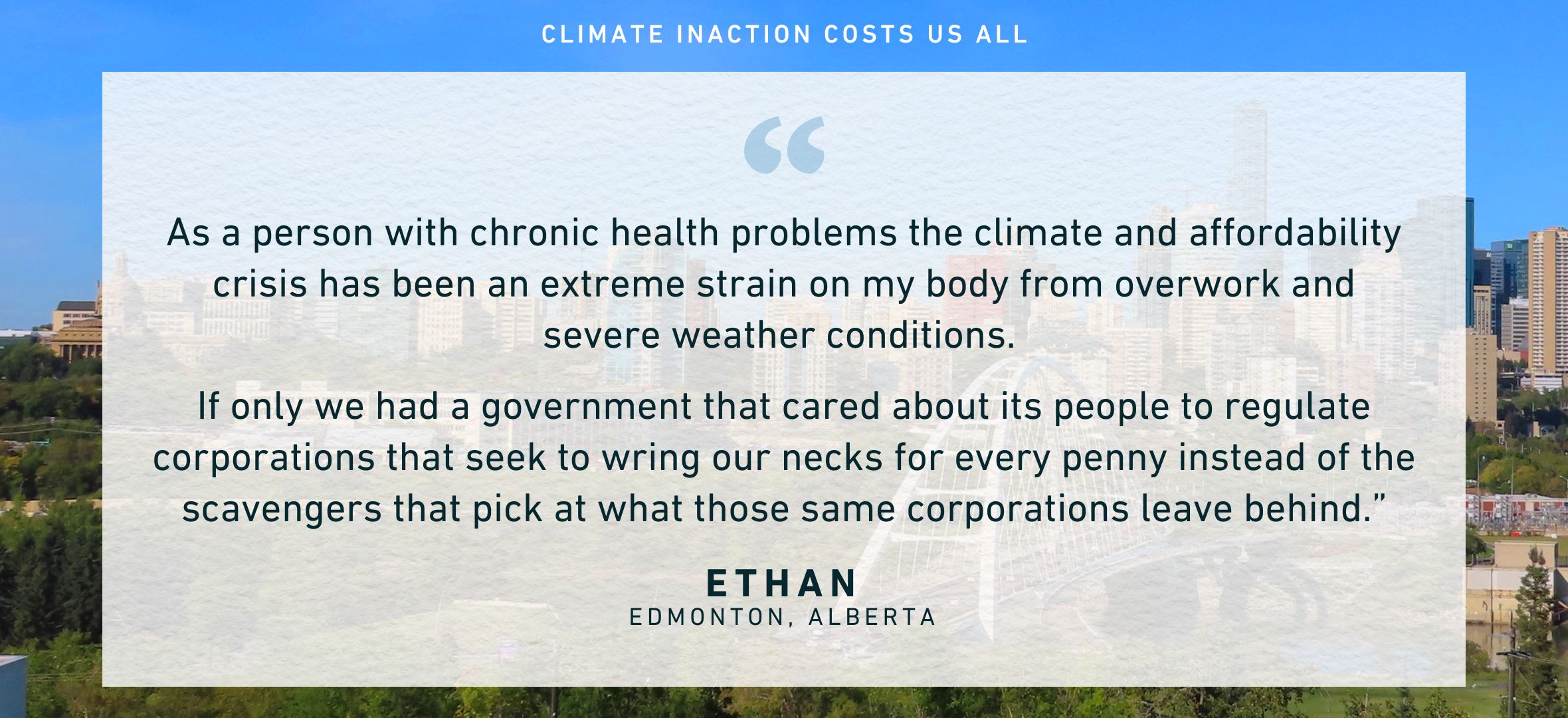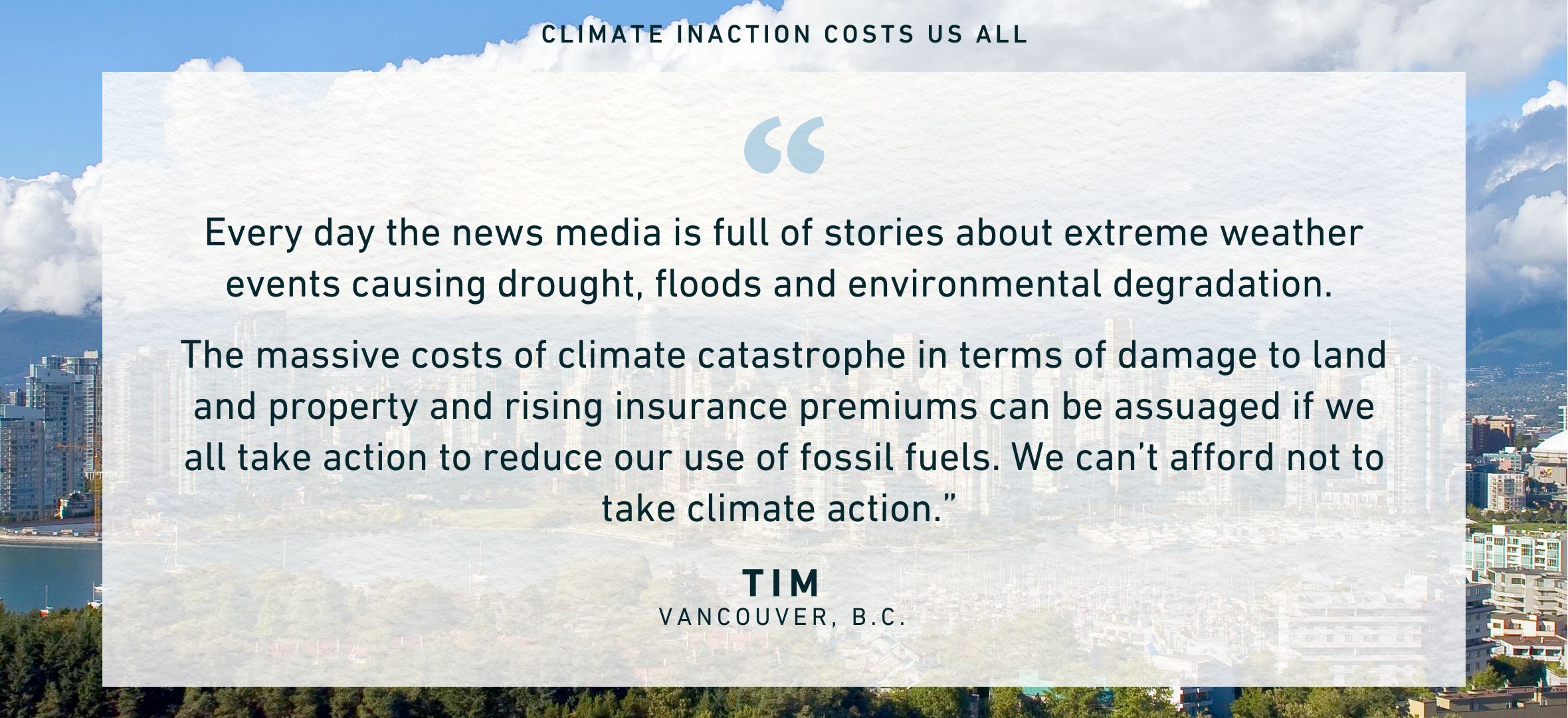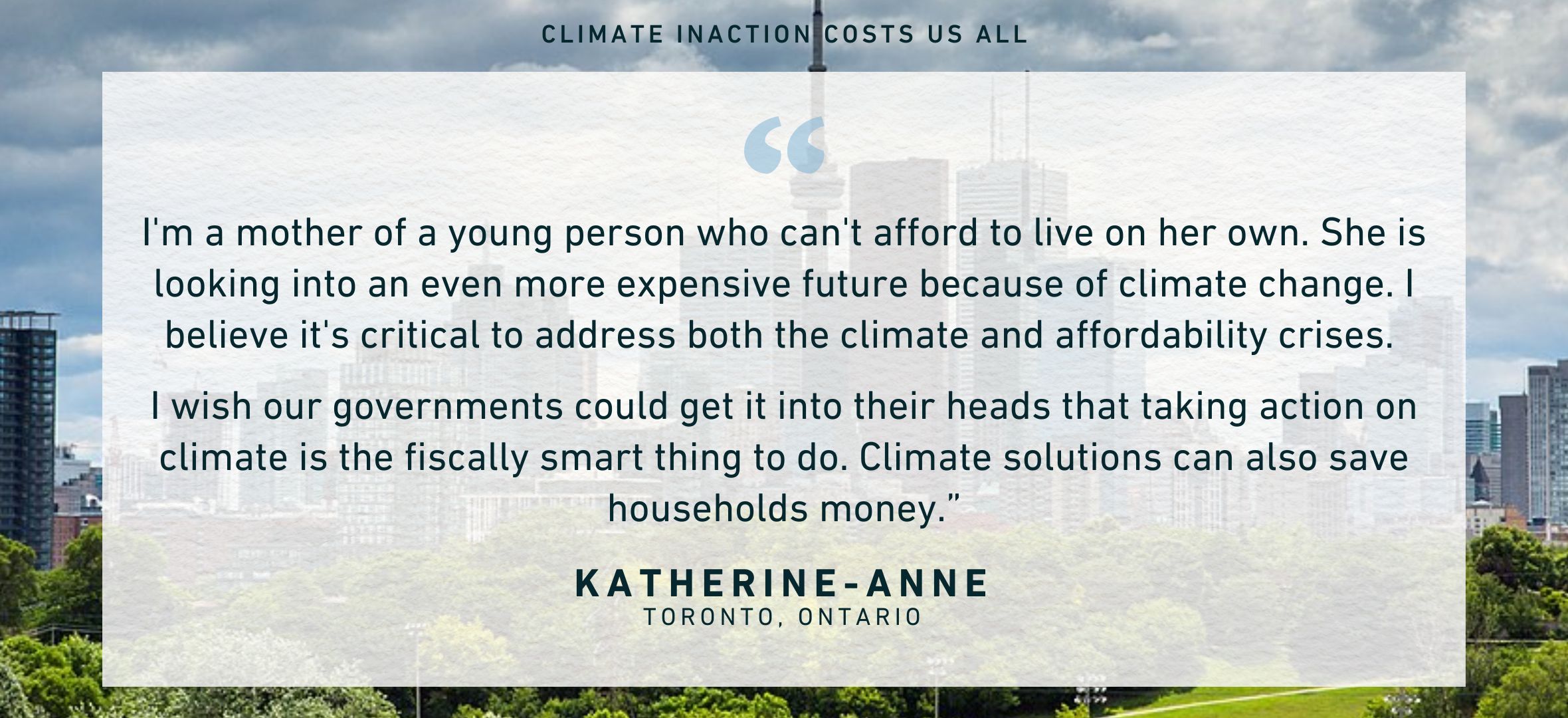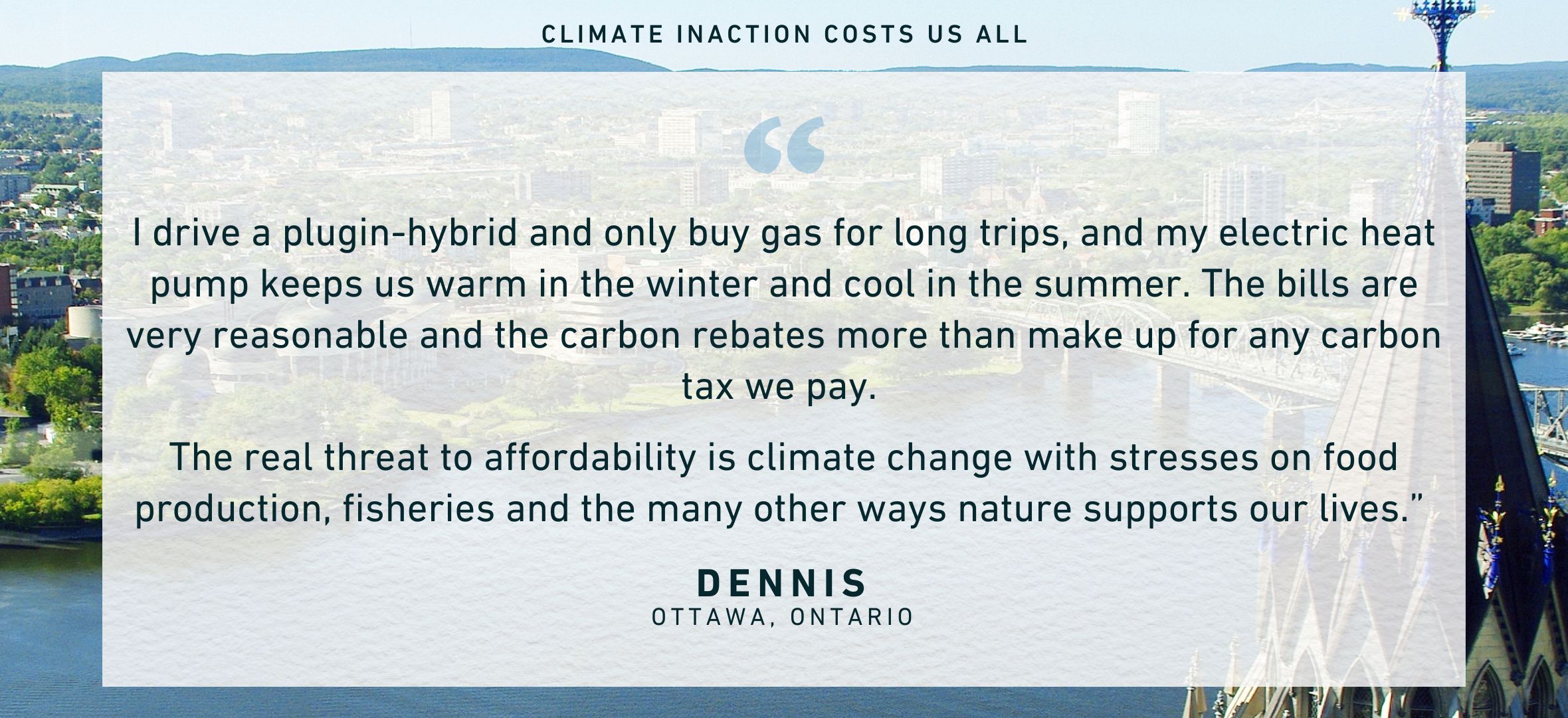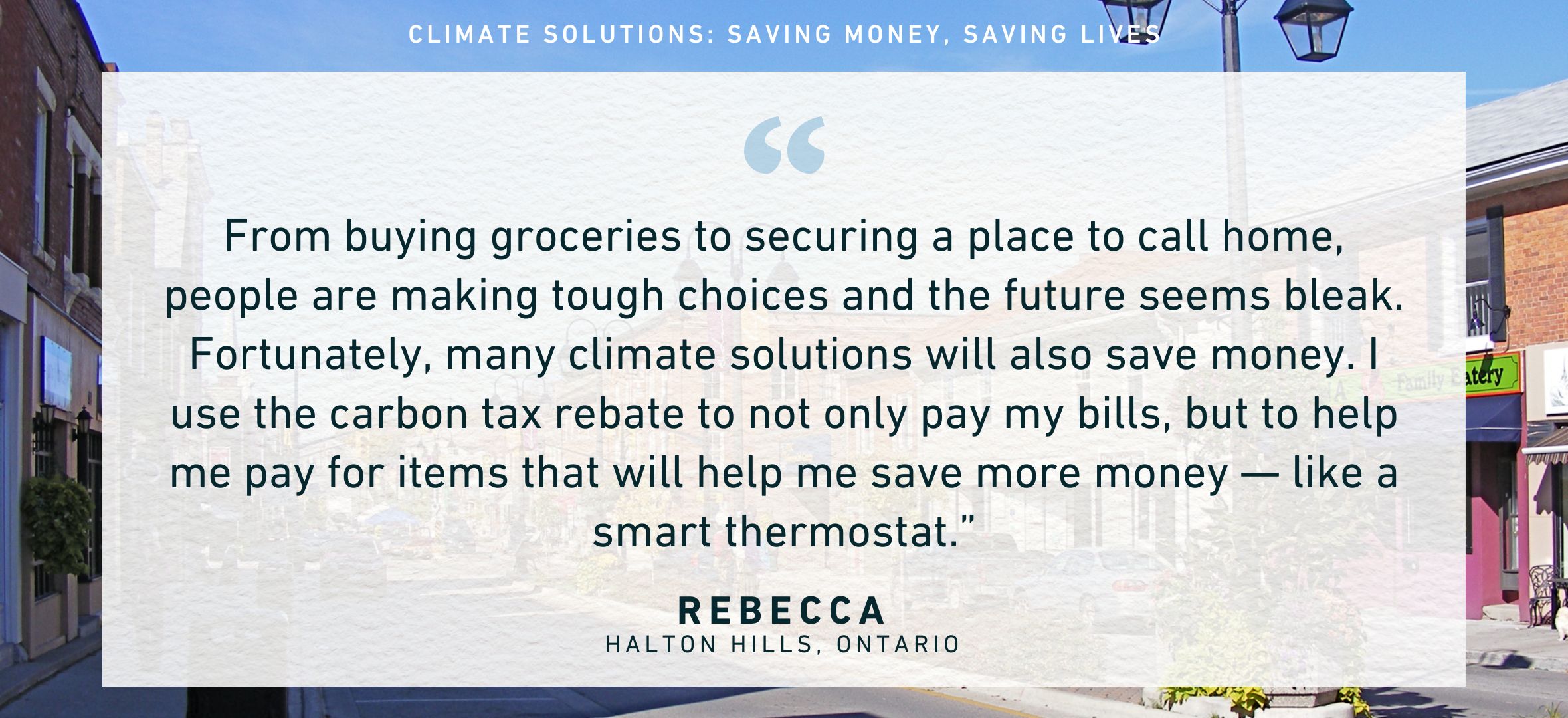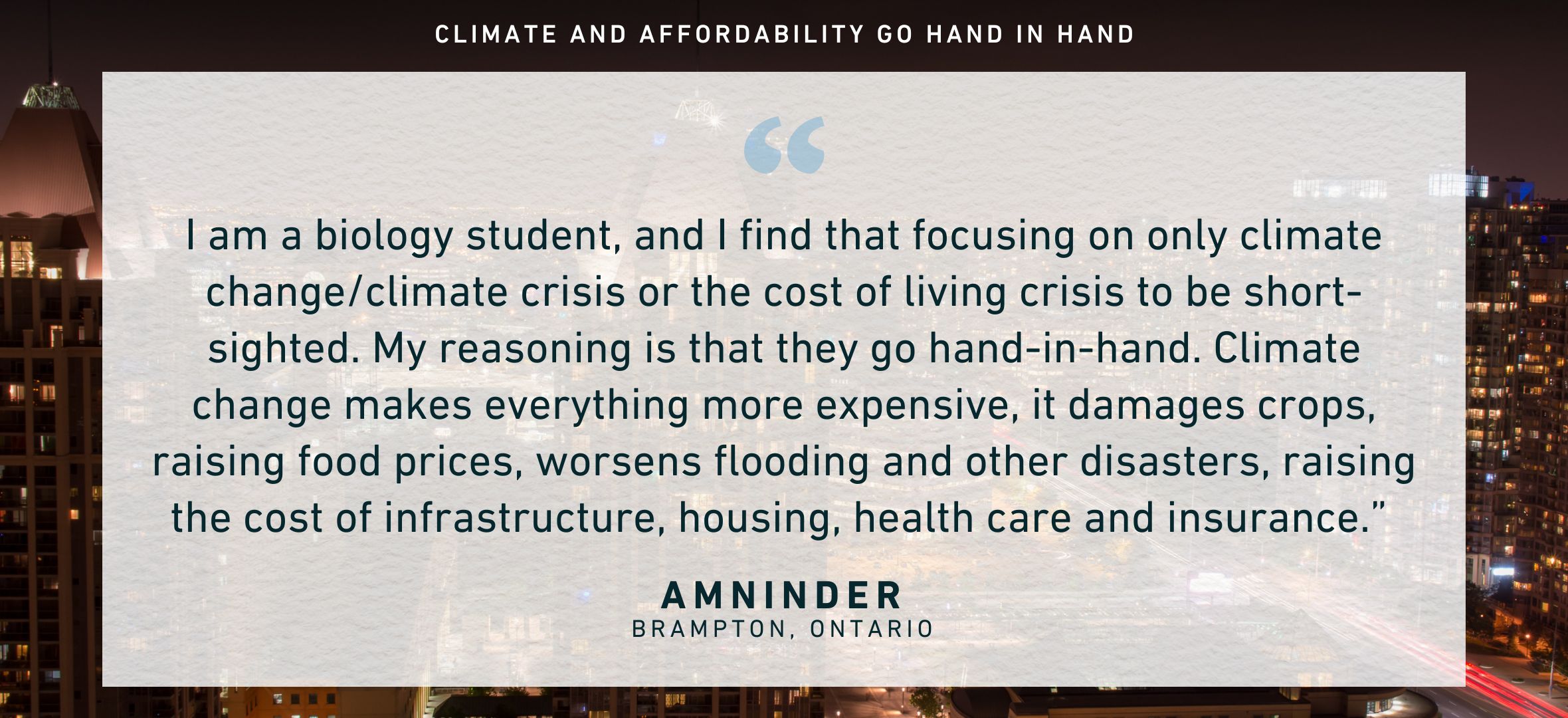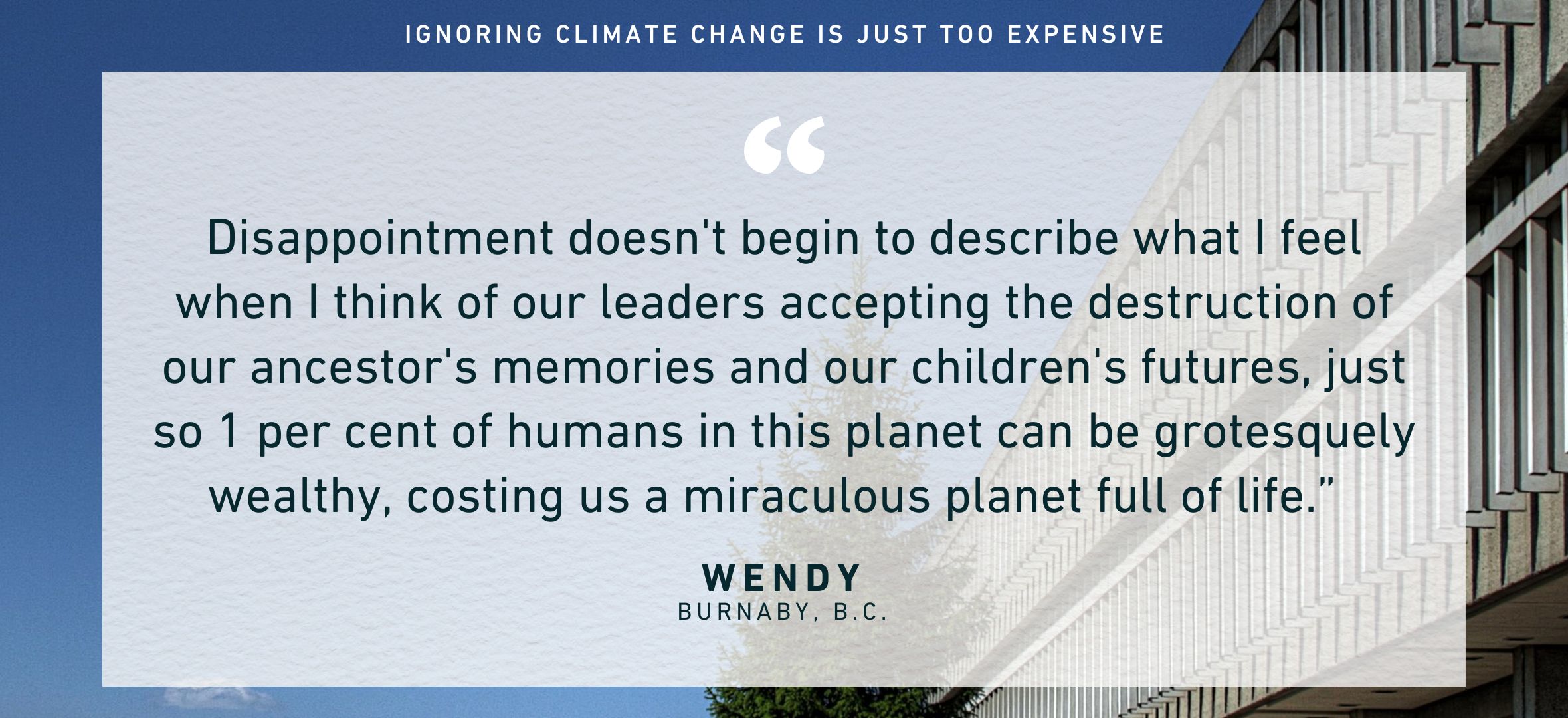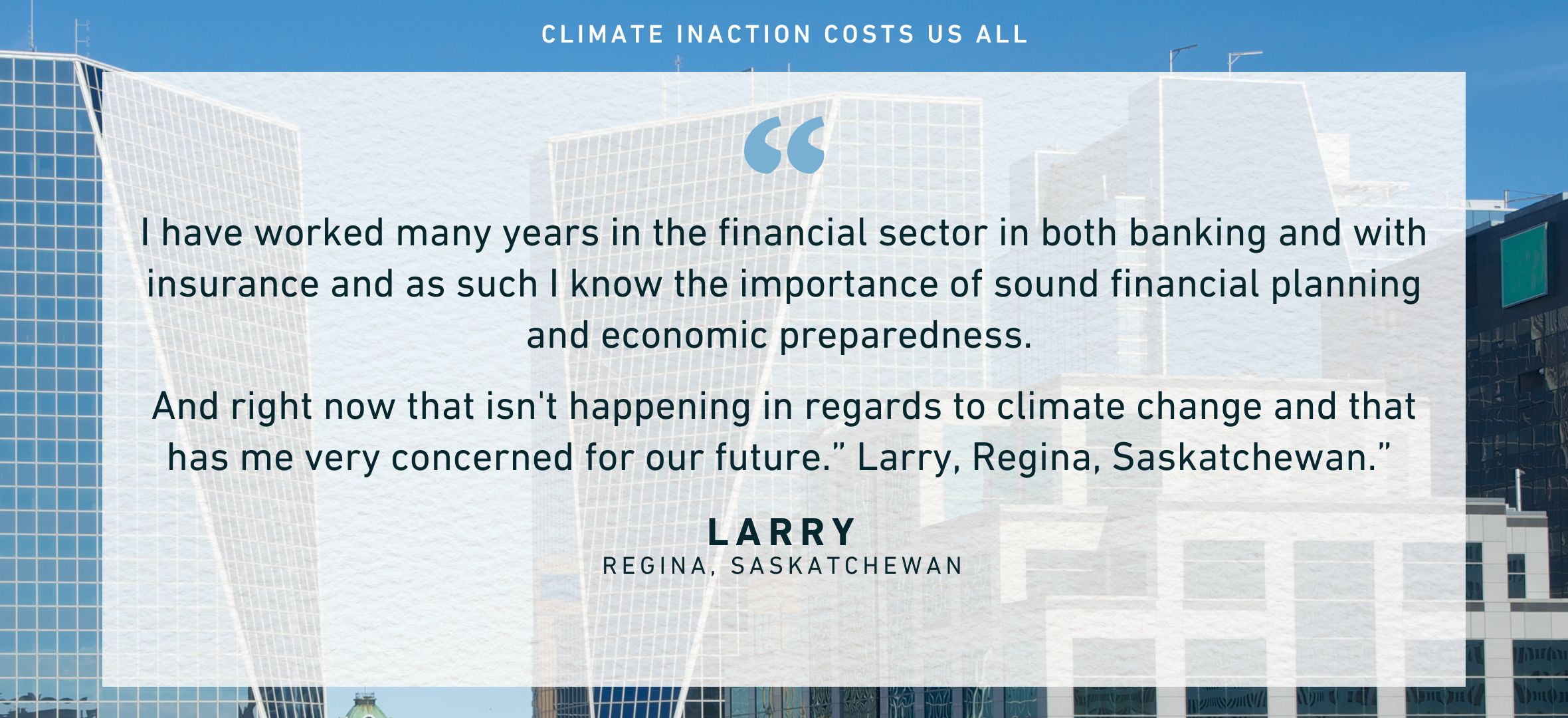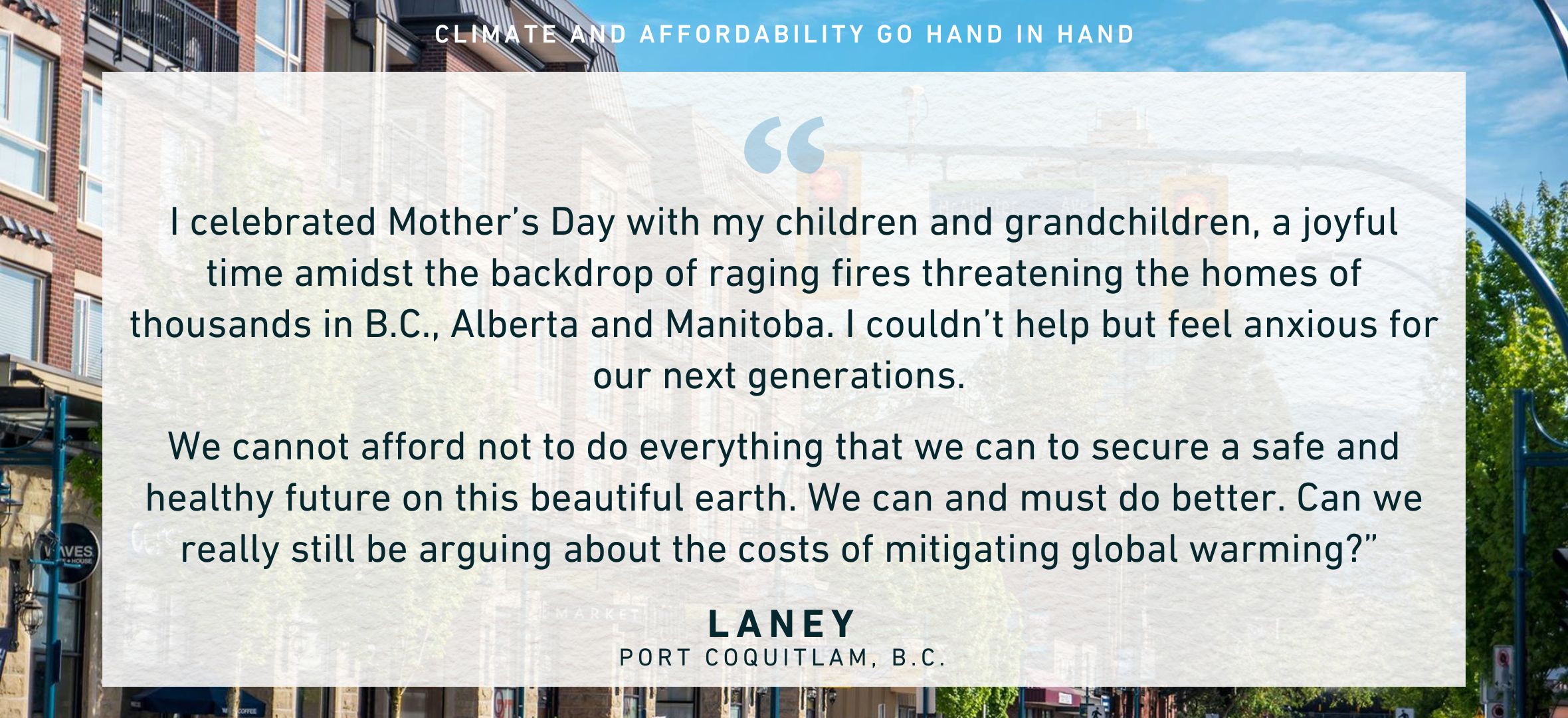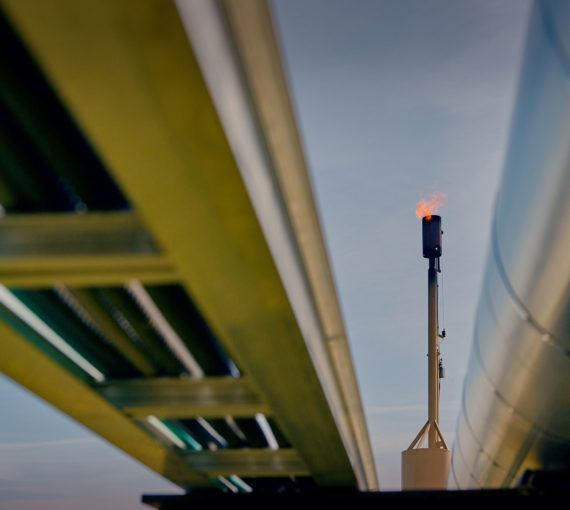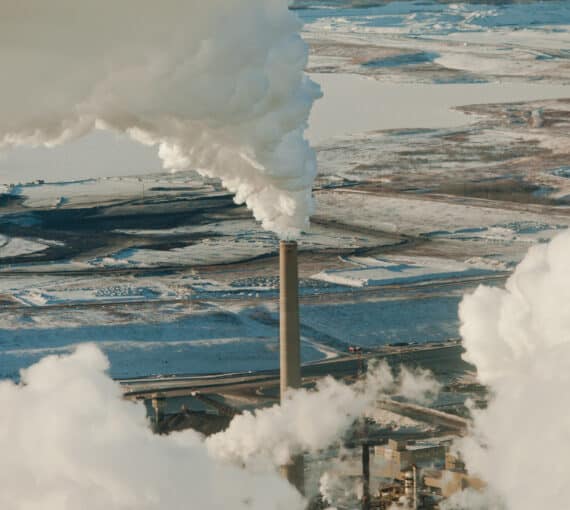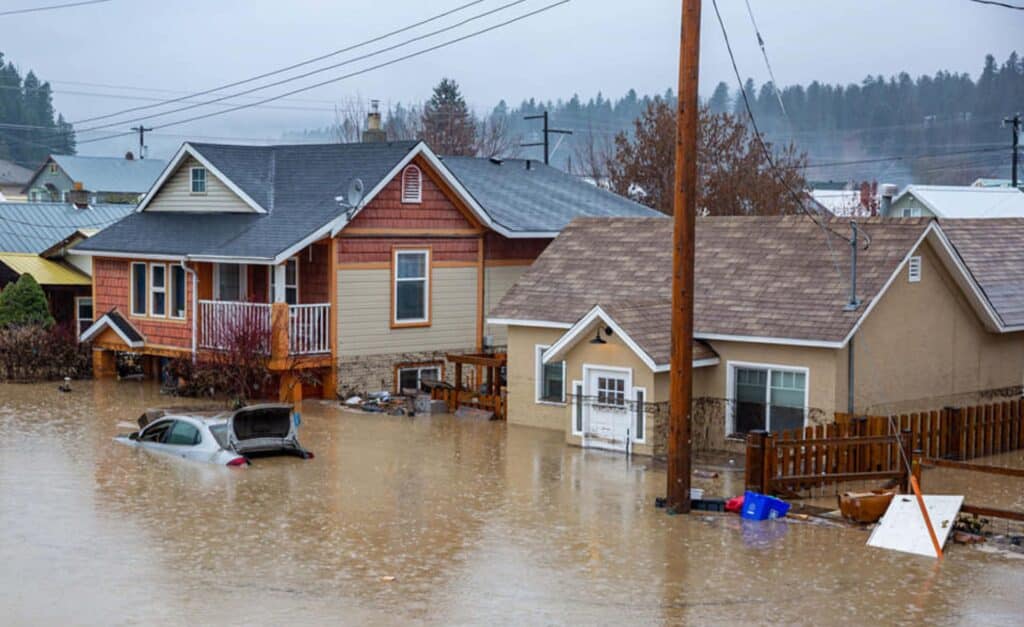
Are you getting tired of hearing how climate action is too expensive? The truth is that not acting on climate change will cost significantly more than doing what’s necessary now.
As we know from the misinformation-fuelled carbon-pricing debate, climate policies and regulations are not driving inflation. Corporate greed and windfall profits are the real culprits. Damage from extreme weather like floods, fires and drought is also driving up costs of housing, food and insurance, which will continue to worsen as we burn more fossil fuels that accelerate climate change.
New research published in the journal Nature concludes that the cost of environmental damage will be six times higher than the cost of limiting global heating to 2 C. We can’t afford NOT to take climate action.
Shifting from oil, gas and coal to renewable energy brings more control, price consistency and energy security by moving us from global insecurity and price spikes created by fossil fuel markets. Renewables such as wind and solar have been the least expensive forms of electricity now for years — significantly cheaper than electricity produced with so-called “natural” gas. The costs of solar and energy storage have dropped by more than 90 per cent over the past decade. The cost of onshore wind has gone down by more than 70 per cent in the same period.
Enthusiasm about heat pumps is rising because they are highly efficient for heating and cooling and they save money and reduce emissions. If we had free heat pumps for all, as well as rebates for home retrofits, we would all save money, improve health and create more comfortable living spaces. This would be a clear win-win-win for health, affordability and the climate.
In Canada we can easily see how fossil fuels and affordability are connected by looking at the cost of electricity. The provinces with the lowest electricity costs are the ones that use the least oil, coal and gas.
So, as many people throughout Canada and the world grapple with the concurrent affordability and climate crises, the good news is that taking action on climate is the fiscally smart thing to do, and many climate solutions will also save households money.
The affordability crisis is on everyone’s mind. Read what some people in Canada are saying about the intersection between climate action, fossil fuels and affordability:
It’s clear that the research on the costs of addressing climate change and its effects on affordability are supported by what people in Canada are experiencing throughout the country. Despite what some are claiming, we can not only afford to act on climate change, WE MUST. Recognizing the many ways that climate solutions are also answers to affordability concerns makes clear that an energy transition will benefit individuals and communities. Let’s speak up the next time we hear that we can’t afford to act on climate.
